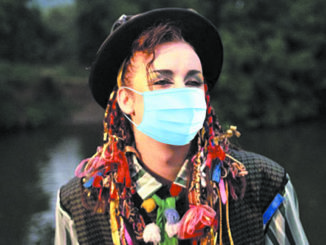I’m more than a little perturbed by the narrative among a certain faction that the media is overhyping the seriousness of the coronavirus—aka COVID-19. I mean, where do they think we get our information? I’m happy to report that it comes from the experts—you know, doctors, virologists, public health officials, et al.
It’s not like we’ve reached out to dial-a-psychic or gleaned things from some holistic blogger. Our sources are professionals who know what they’re talking about—they have the educational bona fides, and their jobs are dedicated to protecting human health.
This week, as the spread of the virus comes closer to our region, we’ve reached back out to Butte County Public Health, seeking its director’s recommendations for the ways the general public can protect ourselves and our community (see Healthlines, page 12). Meanwhile, we’ve also sought comment from some major local public institutions—Chico State, Butte College and the Chico Unified School District—about their plans when coronavirus emerges locally.
Considering the World Health Organization is now labeling COVID-19 as a pandemic—that’s as of the CN&R’s press time, Wednesday morning—local transmission is pretty much inevitable. Meanwhile, tests of suspected local coronavirus cases were pending. Indeed, the situation is evolving rapidly. And because COVID-19 is a new strain, some mystery remains.
A few things are certain, however: This illness isn’t a joke or a hoax. But don’t take my word for it. Look to the numbers. As of Wednesday, almost 120,000 cases of the illness have been reported worldwide. More than 4,000 people have died. In other words, coronavirus is fatal for nearly 3.5 people out of every 100 known to have contracted it.
For some reason, though, there are people who liken COVID-19 to influenza. But doing so minimizes the significance of the new disease. Case in point: The mortality rate of the flu is approximately 0.1 percent. I’d take those odds over the coronavirus’ any day.
There certainly are similarities in terms of symptoms—both are respiratory diseases and present with fever and a cough, for example. The treatment is mainly supportive care, dependent on the symptoms, though flu remedies can shorten intensity and duration. Medical professionals recommend a flu vaccine to avoid that seasonal scourge, but there isn’t one for COVID-19. So, as of this point, the precautionary measures we’ve outlined in this paper are the best ways to ward it off.
In other (lighter) news Although the recent 80-degree weather makes it feel like spring has already sprung, the first day of the season is March 19. The peak almond bloom was a few weeks ago—as you probably noticed from everyone and their mother jumping into a random orchard to take an Instagram-worthy pic—and now many of the local stone fruit trees are blossoming, too.
Then, there are the ornamentals. This week, while on a walk downtown to get a Chico Chai pick-me-up, the Bradford pears were in full bloom. They were giving off their pungent stench—if you know, you know—and dropping petals like scattered showers in the breeze.
My understanding is that this variety of tree is considered an invasive species, so my hope is that the city replaces them at the end of their lifespan with something native and less stinky.



